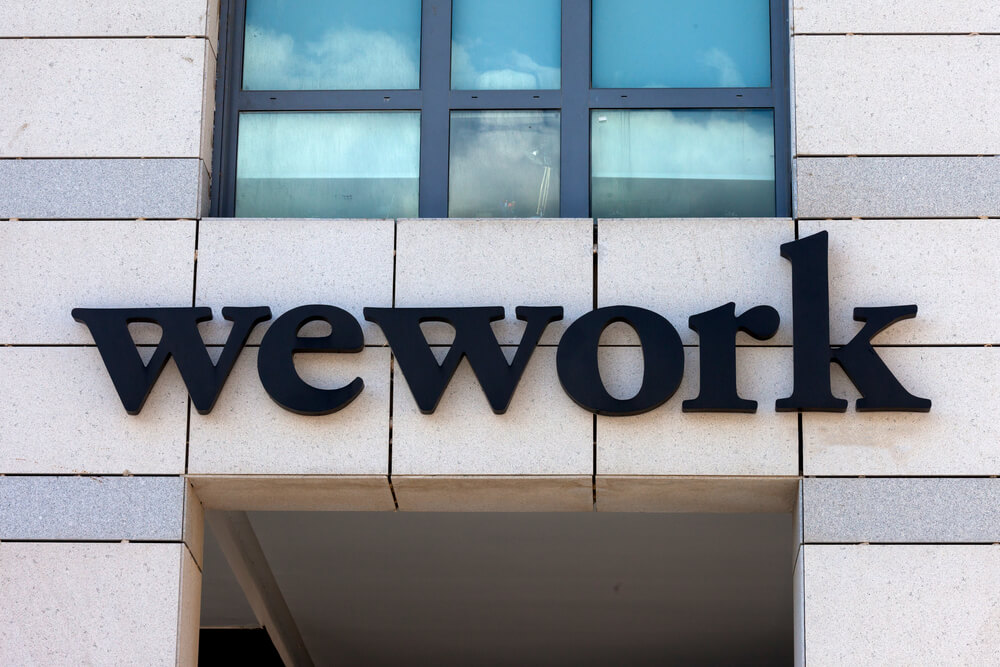WeWork’s parent company announced major changes in its corporate governance practices Friday as it revealed plans to list shares on the Nasdaq.
The We Company is pressing on with its highly anticipated stock market debut — expected later this month — despite concerns over its ability to make money and the messy decisions of co-founder and CEO Adam Neumann.
WeWork said it was cutting by half — to 10 per share from 20 — the voting power of highest-class shares that Neumann and others would have after the IPO. Neumann would still control a majority of its outstanding voting power, giving him the ability to dictate the outcome of major decisions.
The company also said it will have the power to remove Neumann as CEO and will act as a group to appoint a successor, instead of relying on a board committee.
The office-sharing company’s parent firm, The We Company, announced the changes in response to market feedback in a regulatory filing Friday.
Investors have shown lukewarm interest since WeWork outlined its IPO plans last month, painting a picture of breakneck expansion on the back of massive losses, with no clear path to profitability. The New York-based company is considering a valuation of less than half of the estimated $47 billion that private investors have assigned to it, according to news reports and a source familiar with the discussions.
Neumann, a 40-year-old charismatic CEO who has been the face of the company, has created a stir by using some of his WeWork stock to secure a $500 million personal loan, and selling some of his shares. He has raised conflict of interest concerns because he owns four buildings that WeWork leases. And a backlash prompted Neumann to return $6 billion that We Company paid for the trademark “We.”
WeWork has said Neumann would not sell any of his shares in the IPO offering and would no longer buy properties for the purpose of leasing them to his own company. On Friday, The We Company added that Neumann would give the company any profits he makes from real estate transactions with WeWork.
The company plans to appoint two directors, including a lead independent board member, within the next year and said that no member of Neumann’s family will sit on the board. Earlier this month, it agreed to appoint a woman — Frances Frei, a professor at Harvard Business School — to its board when the IPO is complete after facing backlash over its all-male board.
WeWork has billions of dollars riding on a successful IPO. It struck a deal last month that would give it access to $6 billion in financing raised by a group of banks, as long as it raises at least $3 billion in the IPO.
Founded as a co-working space in Manhattan in 2010, WeWork has grown to become among the biggest corporate landlords in some cities. It mostly makes money by renting buildings and dividing them into office spaces to sublet to members.
Its revenue has more than doubled annually over the last few years, reaching $1.8 billion in 2018, but its losses have mounted almost as quickly, reaching $1.6 billion last year.
The brand is popular with small businesses, start-ups and freelancers who can’t afford permanent office space. Members use an app to book ready-made offices or desks and get access to front-desk service, trendy lounges, conference rooms, free coffee and other services.
But its business model has not been tested in an economic downturn that could hurt its members, whose lease commitment currently average 15 months. Meanwhile, WeWork has an average commitment of 15 years on the buildings it leases.
WeWork’s location operating expenses amount to about 80% of sales, and the company has given little indication of how it might reduce its costs and eventually turn a profit, said Dan Morgan, senior portfolio manager for Synovus Trust.
Companies have been lining up all year to sell their shares on public markets, as they hope to cash in on a stock market that’s close again to record heights. But investors have shown weak appetite for other fast-growing, money-losing enterprises that debuted on the stock market this year, particularly Uber and Lyft.
WeWork, meanwhile, is facing skepticism that it should even be valued as a tech company, rather than a real estate company.
WeWork’s $47 billion private valuation amounts to 25 times sales, compared to the average market valuation of real estate companies at about six times sales, said Morgan.
Even the world’s biggest mutual-fund companies are having a tough time pinning down how much WeWork is worth.
Fidelity’s Contrafund, one of the country’s largest mutual funds with $117.5 billion in assets, has owned shares of WeWork for years. It bought class A shares at $32.89 apiece in 2015, and its valuation of them ramped up to more than $80 in the second half of 2018. But Fidelity’s valuation has subsequently cooled, and it was back down to $54, as of June 30.
WeWork had about 338.4 million shares outstanding at the end of 2018 on a fully diluted basis, which implies Fidelity pegged the company’s total value at about $18.3 billion, as of a couple months ago.
© The Associated Press. All rights reserved.




